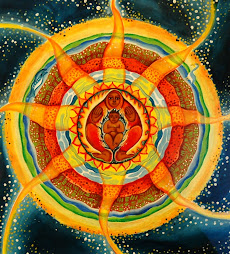Wednesday, October 24, 2007
Tuesday, October 23, 2007
Boomer Culpability (Updated)
From the blog 'After the Future'
October 21, 2007
MZ in response to my "Soft Tryranny" post asked what I thought about boomer culpability in getting us where we are. I'll share a few thoughts here, but what do other boomers think? Non-boomers--what's your take on the responsibility of your elders in getting us all into this fix?
I'd say first of all, the boomer generation is no different than any other except that it was young during an unusual--perhaps aberrational--moment in history. The technocracy trembled a little during that moment, but it didn't take long for it to recover and to reassert its control. Some boomers were affected by an awakening to new possibility that the sixties pointed to, but most in my generation were not affected. There's a reason Nixon pushed for the voting age to be lowered to 18 in 1970--he knew most young people would vote for him, and they did in '72.
As a young man, I wanted to believe that the creative burst that manifested in the sixties represented the introduction of a new cultural era, and I searched everywhere to find people to connect with who shared that hope. I went to meetings of the SDS and other radical left groups and was for the most part disgusted by the egoism, anger, and hedonism that seemed to be their animating spirit. It became clear that the idealism I was looking for would not be found there because for the most part the people in my generation who were leading the student movements didn't have it. They were driven primarily by narcissism and fear of the draft. The technocracy finally figured this out and adjusted by endorsing sexual license and taking away the draft. I learned then that the New Left in this country had its head up its ass then, and nothing much has changed since insofar as its ghost still dominates political discourse on the left.
There were and are exceptions. I admired what Saul Alinsky and his serious disciples were able to achieve. I admired the for the most part the sober analysis of Noam Chomsky, and there are several bloggers in the Chomsky "school" to whom I refer from time to time. But the closest thing I found to what I was looking for was in the Christian social activism of Dorothy Day, Cesar Chavez, and I admired what Daniel Berrigan was trying to do, and the liberation theology movement in Latin America. These people were all for real. I was influenced by the hope for a Church "devoid of means of power" envisioned by the brothers of Taize (Rest in peace, Brother Eric) went to Yale to study theology, worked as a book editor, and then faded away to live on the margins of the technocracy in the late eighties and nineties, allowing myself to become preoccupied by family and other local concerns as it became clearer that whatever the sixties were, they were a moment that had come and gone.
I woke up to the fact that while the American ideal is real, it has had a relatively weak influence in American history. The American spirit has mostly been a celebration of unrestrained greed and powerlust. Looking back on it now, it would appear that the only lasting effect of the sixties was to allow unrestrained sexuality join up with unrestrained greed and power. The technocracy is indifferent to sexual behavior or even promotes destroying traditional restraints. Sex keeps us all distracted. Better from the technocracy's point of view that we should be preoccupied with sexual rights than with political or economic rights.
If "freedom" becomes primarily identified with sexual freedom, not a problem for the technocracy. Whatever the the debate team pros and cons regarding abortion, its promotion as a technological solution to a deeply human and morally complex problem always bothered me and should have bothered more on the serious left, which was so easily co-opted by the technocracy on this issue. No fuss, no muss--so hygienic. I have always seen abortion as cognate with the technocracy's soul-numbing agenda, and it's no wonder that the narcissism of the left blinded them to that aspect of it. It shouldn't be surprising that abortion was enthusiastically approved by the elites in the technocracy and their children in my generation. Stupid sex without life consequences--cool. And it fits in so well with the technocracy's agenda to trivialize, demystify, and dehumanize us.
If the sixties had a political focus beginning the attempt to analyze and understand the technocracy's power, the seventies gave up on that project, focussed on its new sexual liberation toy, my generation and the tweener generation born in the thirties and the war years thus distracted averted their eyes from the more important developments taking place in the economic and political spheres. The tweeners and the boomers were essentially bought off with drugs, sex, and rock 'n roll, our late-modern version of Roman bread and circuses. And people on the left today wonder why they can't mobilize opposition to the technocratic beast? Our generation and those that followed us haven't even a shred of the discipline or the willingness to sacrifice and fight that would be required to face it down. In that we're all culpable. We're soft, and that's the way the technocracy likes us.
So are we boomers culpable more than others? Sure we were too easily bought off (Remember Jerry Rubin?), but it's hard for me to imagine what the leaders of our generation could have done differently. Is it realistic to believe that our generation could have dismantled the military industrial technocracy before 1989? I don't think so. The moment for that would have been in the fifties when we were kids, but the cold-war hysteria of our parents' 'greatest' generation made that an impossibility. And everyone in power at that time believed that the only way to keep the prosperity machine running was by feeding the military-industrial beast.
I suggested that our generation grew up in a historically aberrational era, and what made it so was its historically unprecedented affluence so quickly after a time of such horror and suffering. It was a dizzying time, and no one wanted to mess with success.The lingering fear of a return to the horrors of the 30s and 40s made it psychologically impossible for our parents' generation to consider starving the beast rather than to give it everything it demanded. As a result it became the fat, insatiable horror it is today. Sanity was an impossible option because the preservation of American prosperity and power was the only real option, so American society adjusted to the madness and called it normal.
And so after 1989 we elected for the first time one of our own. He is the boomer paradigm: a patina of idealism thinly coating crude instinctuality, ambition, and a ready willingness to serve the technocratic beast created in the forties and fifties. The technocracy prefers Republicans, but it can work with housetrained Democrats. And Clinton pretty much did everything he was told (as will his wife). His boomer VP, Al Gore, though compromised and complicit in the system, was still the better man in which genuine idealism had not been completely squeezed out of him. But the sincerity of his idealism is precisely what disqualified him from being elected. The beast does not tolerate genuine idealism, only its appearance.
And that's how it stands. Washington has become Babylon on the Potomac, a place attractive primarily to the power depraved, the money depraved, or the sexually depraved. No truly decent person could thrive there, and any person naive enough to think differently and who goes there with the idea to change things is quickly disillusioned and leaves, adapts, or in some rare cases makes a stand for principle, usually futile That's why Mukasey's getting a pass. That's why FISA is being dismantled. That's why we lost habeas corpus. That's why if Cheney/Bush decide to attack Iran, congress will get on the bandwagon.
That's what inside-the-Beltway politicians and media understand that the rest of us don't: nothing really matters except feeding the beast. Even the decent ones would say: "Unless you live in the belly of the beast, you cannot have any realistic idea what it's like to work in such an environment. Criticize all you want, unless you're here, you have no idea how things work and what's possible." I understand that, and that's why I don't believe there's any changing things from inside the system--pressure has to be brought from outside.
That kind of pressure is not likely to be brought against this system any time soon--certainly not by the boomer generation. So what is there to be done? the typical American might ask. They might quite reasonably answer: Not much, so why pay attention? Might as well enjoy the bread and circuses while they last. That's pretty much all you can do until the whole thing sooner or later collapses of its own corrupt weight as these systems inevitably do. Katrina was just a shot across the bow. We're evolving into Brazil where the elites will be safe and comfortable within their plushly appointed, Blackwater-guarded, gated communities, and the rest of us will be living in various versions of New Orleans.
So I think the idealism of the sixties was always something of a sham. Deep-seated, sincere Idealism is always a minority position in every generation. In that respect the boomers are no better or worse than any other generation. Maybe future generations will do better.
Update: Some might think my argument about the bloated beast is the same as the Libertarian argument to shrink government. The size of the government is not the issue, but whose interests it serves, and ours has ceased to serve the common good, serving instead the forces that have gradually transformed us into a militaristic surveillance state. Any government-shrinking Libertarian who supported the invasion of Iraq or approves the militarization of our economy over the last sixty years wants opposite things at the same time. Ron Paul seems to get that. I'm not sure so-called libertarian conservatives like Sullivan do. I don't buy into Paul's Libertarianism--I think it leads inevitably to the Brazilification of the country whether it's intended or not--but I would vote for him in a heartbeat if the only other choice was Hillary.
October 21, 2007 at 01:46 PM | Permalink | Comments (2) | TrackBack (0)
Thursday, October 11, 2007
It Takes A Village to Start World War III
On September 26, 2007, Senator Hillary Rodham Clinton voted yes on the Kyl-Lieberman Amendment that effectively labeled the Iranian Revolutionary Guard Corps a “terrorist organization.” The Revolutionary Guard Corps is the largest branch of the Islamic Republic of Iran’s military. It is unprecedented in American history that the armed forces of a sovereign nation have been named “a terrorist organization.” In response to the Kyl-Lieberman Amendment, Iran’s Foreign Ministry and parliament have designated the U.S. Army and CIA as terrorist organizations.
Clinton was the lone Democratic presidential candidate to support this legislation that many view as giving President Bush authority to launch an air war against Iran. Senator Chris Dodd, in explaining his negative vote, said, “We learned in the run up to the Iraq war that seemingly nonbinding language passed by this Senate can have profound consequences. We need the president to use robust diplomacy to address concerns with Iran, not the language in this amendment that the president can point to if he decides to draw this country into another disastrous war of choice.” He added, “We shouldn’t repeat our mistakes and enable this President again.”



